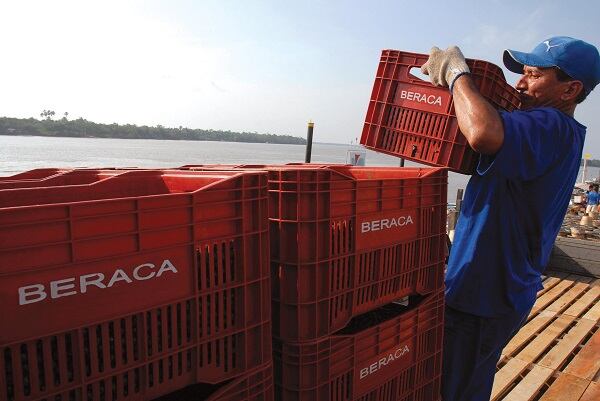Sourcing new natural ingredients can put pressure on the complex biodiversity of regions such as the Amazon, but the regulation implemented by the Brazil government aims to address that issue in a sustainable manner.

Law 13.123 was introduced in the country in May of this year and aims to take the country’s regulation governing the Amazon’s biodiversity one step further by establishing a fairer and more equitable platform to share in the research and innovation of Brazilian biodiversity.
Mixed reactions to the law
According to Beraca’s sustainability and corporate affairs manager, Thiago Terada, the law has been greeted with mixed reactions from the cosmetics industry.
This is because ingredients manufacturers such as Beraca are probably more likely to benefit from an improved innovation pipeline, while manufacturers are expected to pay for it with a 1% tax on net revenues from any cosmetic product that includes ingredients or raw materials derived as a result of the regulation.
Although there has been significant debate over the who bears the cost of the new regulation, Terada believes that the government will ultimately succeed in incentivizing the progress of research and development.
“The new law was discussed with various stakeholders and seeks to reflect a fairer and more equitable sharing of economic benefits generated from Brazil’s genetic resources with traditional communities,” said Terada.
“The new framework is expected to encourage companies to use more ingredients sourced from the Brazilian biodiversity, thus increasing the amount to be shared with local communities.”
Cosmetics industry gains most from access to biodiversity
In recent years the cosmetics industry is the one that has most gained from permits granted by the Genetic Heritage Management Council to access genetic sources throughout Brazil, a position the new regulation is likely to strengthen yet further.
“The new law, alongside the Nagoya Protocol, should thoroughly change the relationship between the cosmetic industry and natural products sourced from the biodiversity in many countries,” said Terada, who stressed that the there has been growing awareness involving this topic.
For Beraca, the new regulation in Brazil is likely to lead to a significant number of new opportunities that should see a wider selection of amazon-derived ingredients in the near future, although Terada also stresses that Beraca processes are likely to remain unchanged as it has already complied with a long list of regulations, including the Convention on Biological Diversity, the Nagoya Protocol and the previously existing laws in Brazil to protect biodiversity.
According to Terada, the company also has all the permits required for access to genetic resources under the current law regulating

access to genetic resources in Brazil, and the appropriate permits do not expire until 2020.
Proceeds from regulation go towards conservation
However, although Terada stresses that Beraca is striving to do everything by the book, he also stresses that the proceeds gained from the new regulation will directly benefit programs to conserve the biodiversity.
“There are two benefit-sharing schemes – monetary benefit sharing, where there is a government fund towards which the companies contribute and the government decides how to spend the levy proceeds, and non-monetary benefit sharing, where the companies invest directly on programs related to biodiversity conservation, technology transfer, capacity building and training.
“If the proceeds are used properly, we will definitely have increased human development through the use of non-timber resources, thus contributing to preservation and sustainable use of forests.
Sustainability is no walk in the park and Beraca’s quest to further enhance its sustainability profile when it comes to harvesting raw materials is non-ending, according to Terada.
Tracability and social impact
This means the company is currently working on developing new tracablity and measuring environmental, economic and social impacts of all the activities carried out through the Socio-Biodiversity Enhancement Program.
“This work has been perfomed by a third-party company and offers us the ability to add value to our clients through the sustainable management of supply chains. Today we can say, for example, that in one location in the Amazon rainforest, every R$1 invested is worth R$3 of work that is taken from illegal sawmills in the area,” he added.
So where is the company going with all of its work on sustainability and just why is it so important to its own business model to ensure that this remains one of the biggest priorities for its daily business operations?
“We believe that the preservation of the Amazon rainforest will only be possible when a standing forest is recognized as more valuable than a felled forest. We need to reinforce public perception of the value of preserved forests and the best way to do that is through the sustainable use of non-timber resources by over 4 million people living in that area. If we are successful in this effort, we will have 4 million forest guardians.”
